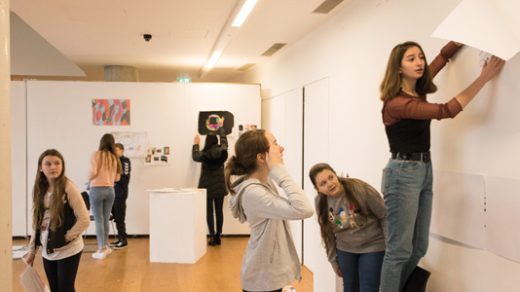Students from disrupted and disadvantaged background aim high with university choices

The number of UK 18-year-olds from the most disadvantaged backgrounds applying to the most selective universities and courses has jumped 8% this year. This compares to a 1% rise for students from the most advantaged backgrounds applying by the 15 October application deadline.
The October 15 equal consideration deadline is for anyone wanting to start a course in autumn 2022 at either the University of Oxford or the University of Cambridge, or for most medicine, dentistry, or veterinary courses at any other university.
This deadline usually accounts for approximately 10% of the total number of applicants in a cycle. The equal consideration deadline for all other courses, universities and colleges is 26 January 2022.

In total, 77,810 students of all ages and domiciles have applied in total this year, up a modest 1% on last year.
In general the number of UK 18-year-olds who have applied by the October 15 deadline is up by 3% (39,920 vs 38,580), reflecting the 3% increase in total UK 18-year-olds in the population in 2021.
The number of international applicants from outside EU remains static this year following 2021’s dramatic 20% rise on 2020 (17,460 for 2022 vs 17,510 in 2021 and 14,540 in 2020).
Clare Marchant, UCAS chief executive, said: “It is heartening to see that this cohort of students – some of the hardest hit by the COVID-19 pandemic who didn’t get to sit their GCSE’s and National 5’s, and have had almost two years of disruption to their studies – are being ambitious with their university and college applications.
“It is particularly pleasing to see a narrowing of the disadvantage gap with 8% more students from the most disadvantaged backgrounds aiming high and applying to the most competitive courses.
“We know that increased demand and the continued rise in the number of 18-year-olds in the UK population will put a squeeze on available places, particularly those at the most competitive institutions and on the most competitive courses.
“This year marks another year where examination arrangements will be different. Universities and colleges are used to dealing with a wide range of different qualifications from different educational settings, and whilst this year presents challenges, we are confident in their ability to continue delivering a fair and transparent process.
“Examinations are only one part of the picture, with admissions professionals looking at the full application to build the picture of their applicant, including potentially additional assessment methods such as interviews.
“Confidence in higher education in the UK remains strong, so I would encourage students to continue to be aspirational, but realistic, and ensure that they have a back up plan so they can remain open to all the opportunities available to them. We know that many applicants, including those applying to the most selective universities and courses, are considering a higher or degree apprenticeship as well as a traditional undergraduate degree as part of the range of options available to them.
“At UCAS, we are ready to support all students with their next steps by providing them with all the information, advice and guidance they need to help them make an informed decision for their future.”

In response to the figures, Michelle Donelan, minister for higher and further education, said: “This government is focused on levelling up opportunity so that every young person has the chance to succeed which is why I am so proud that on top of record number of disadvantaged students going to university this year, more young people from the most disadvantaged backgrounds are setting their sights on top universities and most competitive courses for next year.
“I am grateful to everyone across the sector who has helped make this year’s application cycle run smoothly, and to every student who has taken that vital next step on their journey through education.
“Through our reforms to post-16 education, we are determined to ensure more young people can gain the skills they need to thrive, whatever their chosen path and background. We have already tasked the Office for Students with pushing the most selective institutions to make faster progress on widening participation and will continue to look at how we can improve access to universities in the future.”




